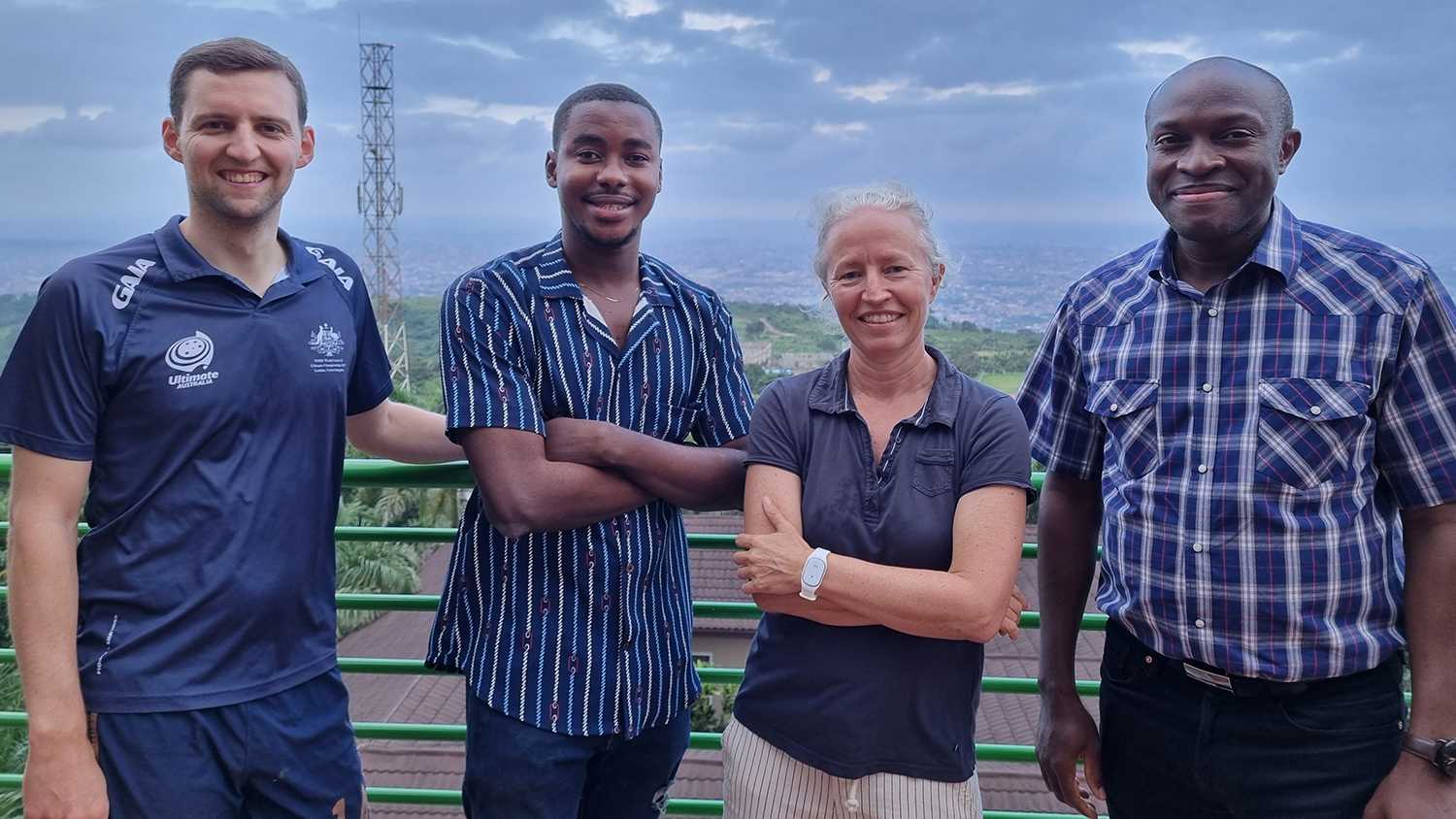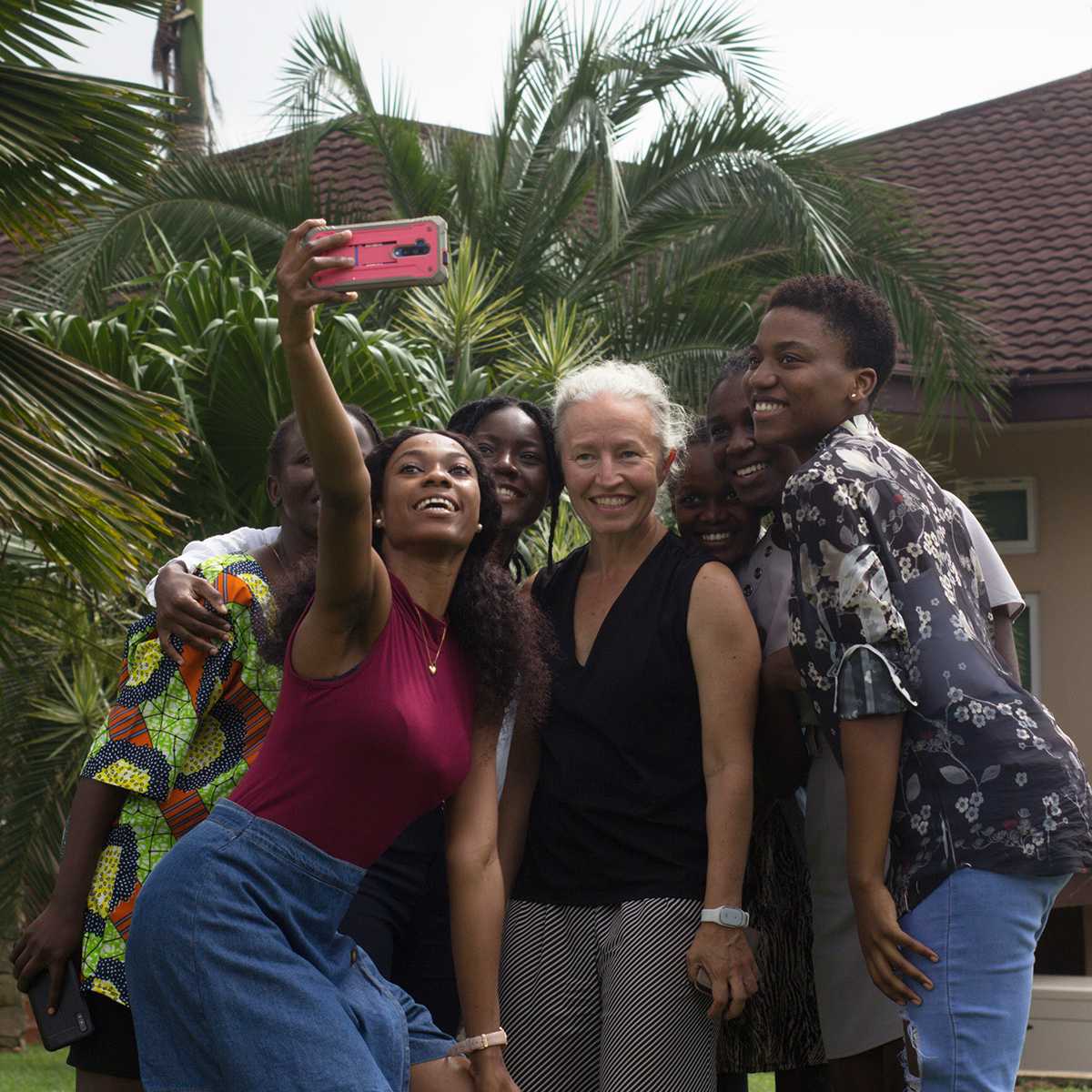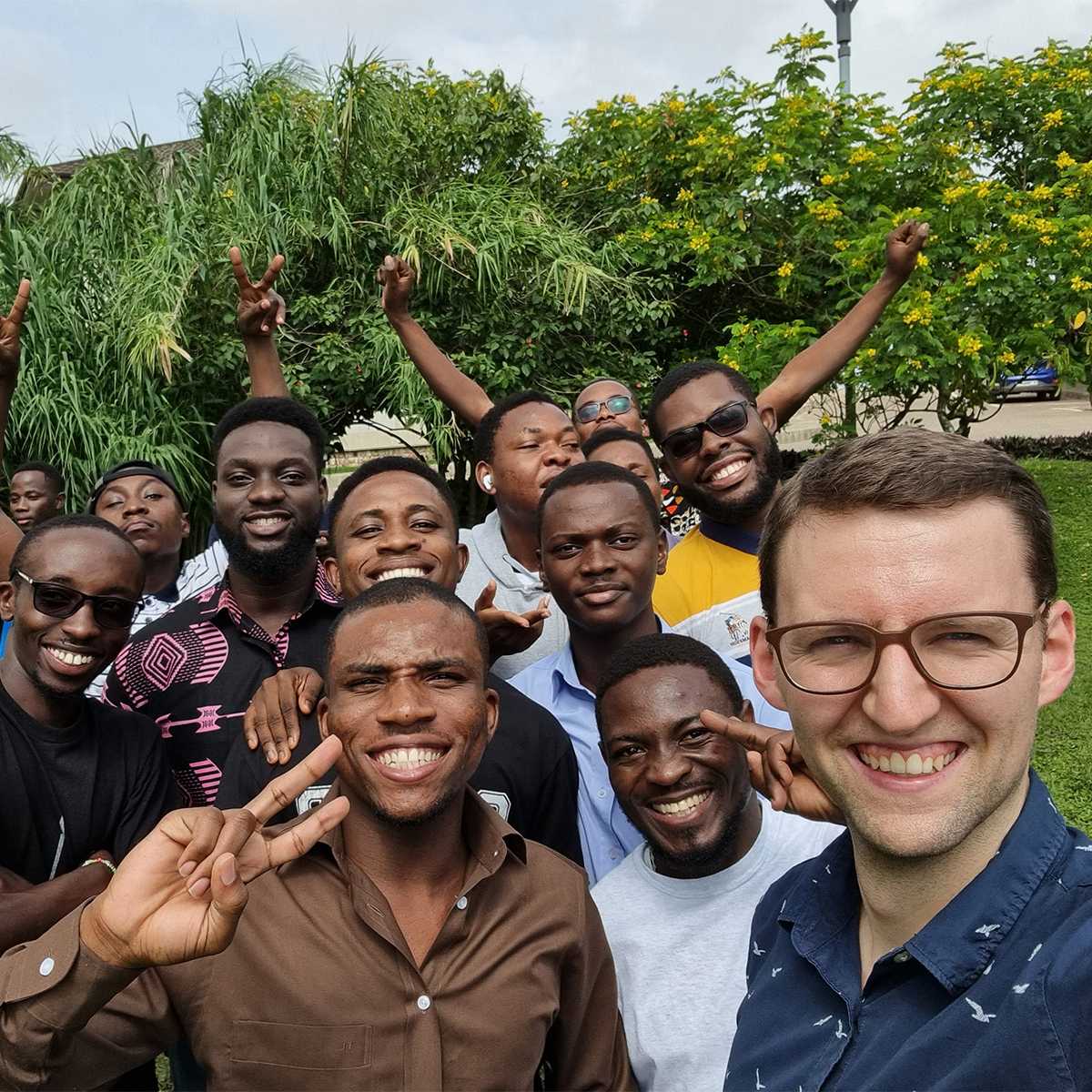Teaching mathematics in Africa
Georg Anegg spent three weeks at Ashesi University in Ghana, teaching mathematics to students in the first year of the ETH Master's in Mechatronics Engineering. In the following interview he tells us what it is like to teach at Ashesi and what motivated him to be part of this project.

How did you end up going to Ghana as a teaching assistant?
Before starting my doctorate at ETH I spent two years working as a tutor and teaching assistant in South Africa. When Meike Akveld and Alexander Caspar were asked to teach a mathematics module for the new ETH Master's in Mechatronics in Ghana, they were aware of my teaching experience and asked if I would be willing to join them as a teaching assistant. I was more than happy to take this great opportunity.
Ashesi is a small private university in Ghana with a total of just over 1,300 students. What impressed you about the university and what tasks did you have as part of the teaching team?
Ashesi University is small and focuses on a small number of degree programmes. It is located on a beautiful campus just north of Accra overlooking this gigantic city of four million people. The campus is well-maintained and includes a canteen, as well as sports facilities and social spaces. Most students live on campus which creates a wonderfully stimulating environment and atmosphere, somewhat similar to the Hönggerberg campus where students live on site as well.
The courses are given by tandem pairs: two lecturers and two teaching assistants, one from each institution. The four of us were responsible for all the usual tasks: planning the course, delivering the lectures, assisting the students, as well as planning and carrying out suitable forms of assessment. Since each module in the ETH Master’s at Ashesi is only four weeks long, the focus is on continuous assessment. In the final week, the students had to apply their knowledge and present a poster on their findings.

“We were able to adapt the course content on the fly and tailor it to the specific needs of the class, which gave us a lot of flexibility and the opportunity to have much more direct impact on the individual students' learning experience.”Georg Anegg
Is teaching different at Ashesi than at ETH?
My experience with teaching in Ghana is different.
The academic background of the students and their mathematical level was very mixed since the students are admitted from diverse engineering disciplines and institutions across sub-Saharan Africa. Yet, some students were on top of the material and asked very challenging questions. We had a small class of only 26 students with four people in the teaching team, and were able to adapt the course content on the fly and also tailor it to the specific needs of the class. So if we felt that we should change something, like simply taking a break or spending more time on a particular topic, we were able to do that right away. This gave us a lot of flexibility and the opportunity to have much more direct impact on the individual students' learning experience.
In terms of non-academic matters the students were very polite and thoughtful as well as extremely motivated. They put a lot of time into all the material and were not satisfied until all their questions were answered.

“It inspires me to be around very bright and dedicated students who work hard and appreciate the type of specialised input that we are able to give them.”Georg Anegg
What is your personal motivation? Why do you take part in these projects in Africa?
I’ve had the great pleasure to work with people from many different backgrounds and I’ve always found it to be an immensely rewarding experience for me personally and academically. It inspires me to be around very bright and dedicated students who work hard and appreciate the type of specialised input that we are able to give them. Ashesi does a great job of creating an enriching environment for students and teachers alike. I was very happy to be invited to come back next year, which I’m excited to do.
Ashesi-ETH Master's in Mechatronics Engineering
ETH Zurich and Ashesi University in Ghana, together with industry partners, are offering a Master's degree programme in mechatronics engineering taught in Ghana by faculty members from both institutions. The programme is aimed at promoting the next generation of leaders in sub-Saharan Africa who will take responsibility for sustainable development in the region.
The collaboratively developed programme is taught in tandem between faculty members from Ashesi University and ETH Zurich. The close interaction between the two institutions allows knowledge transfer in both directions.
Structured as a series of block courses over three years, graduates of the joint programme will be awarded both a Master of Science (MSc) degree from Ashesi University and an ETH Master of Advanced Studies (MAS) degree.
Information on the programme, course content and scholarships